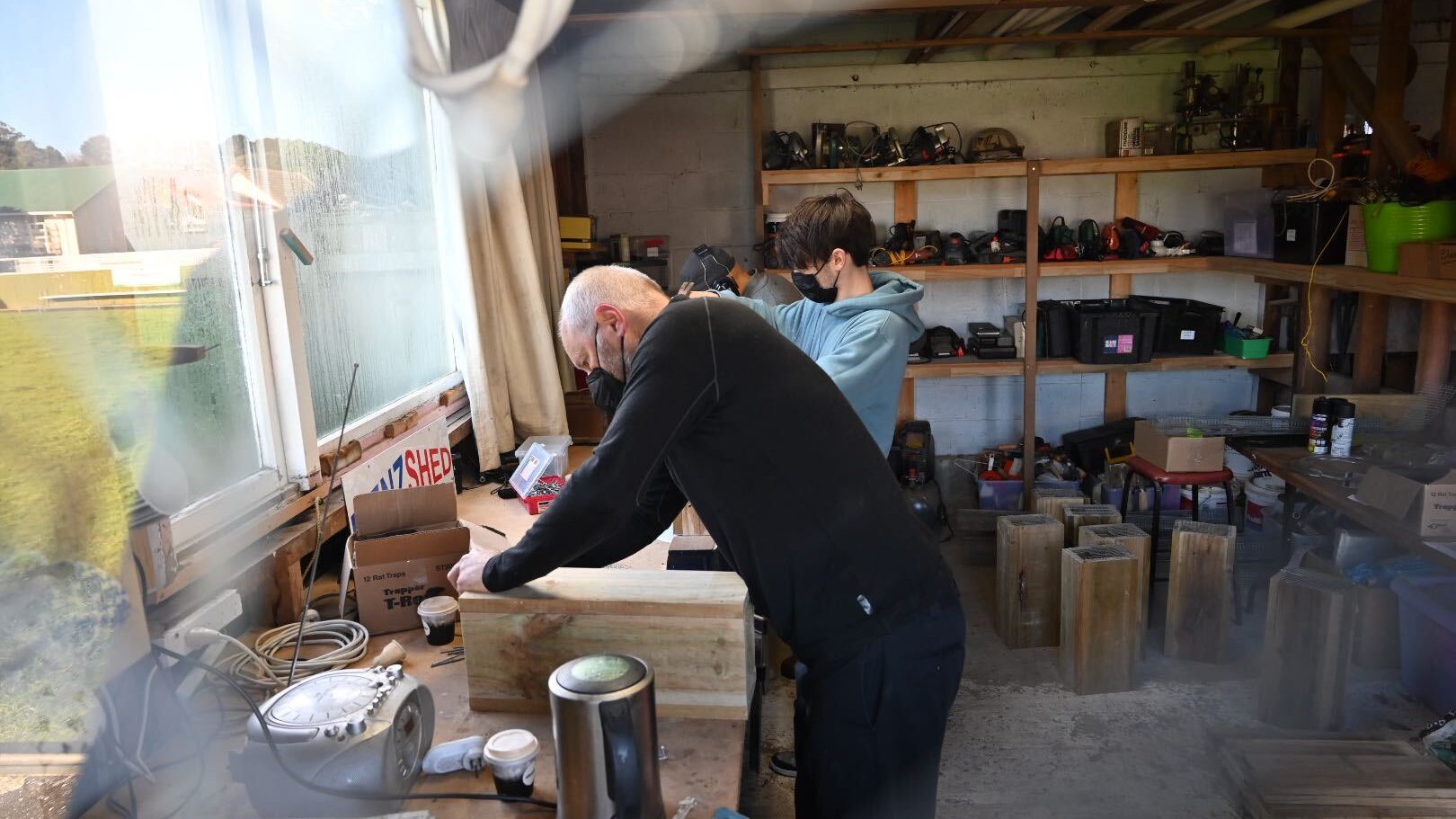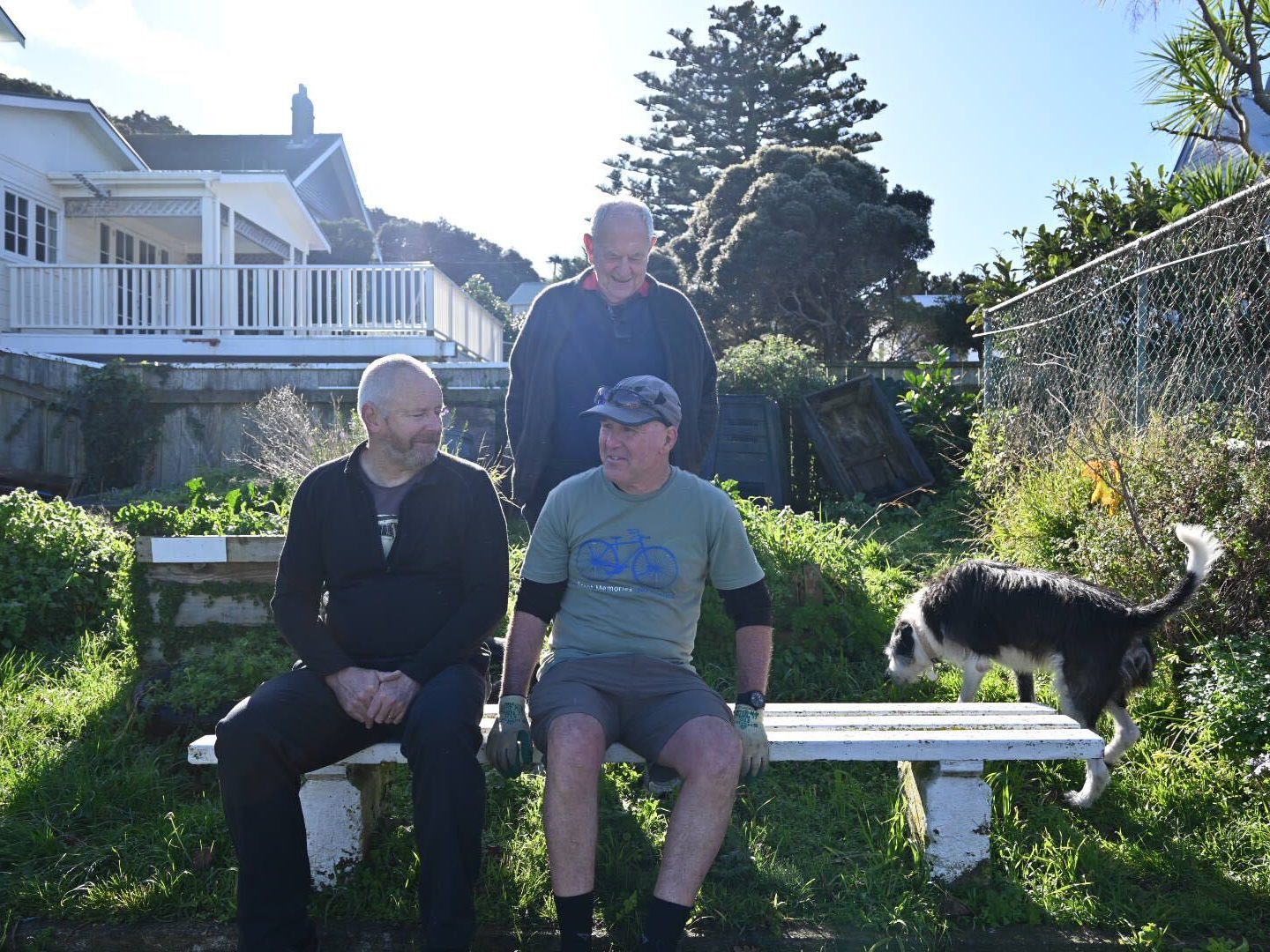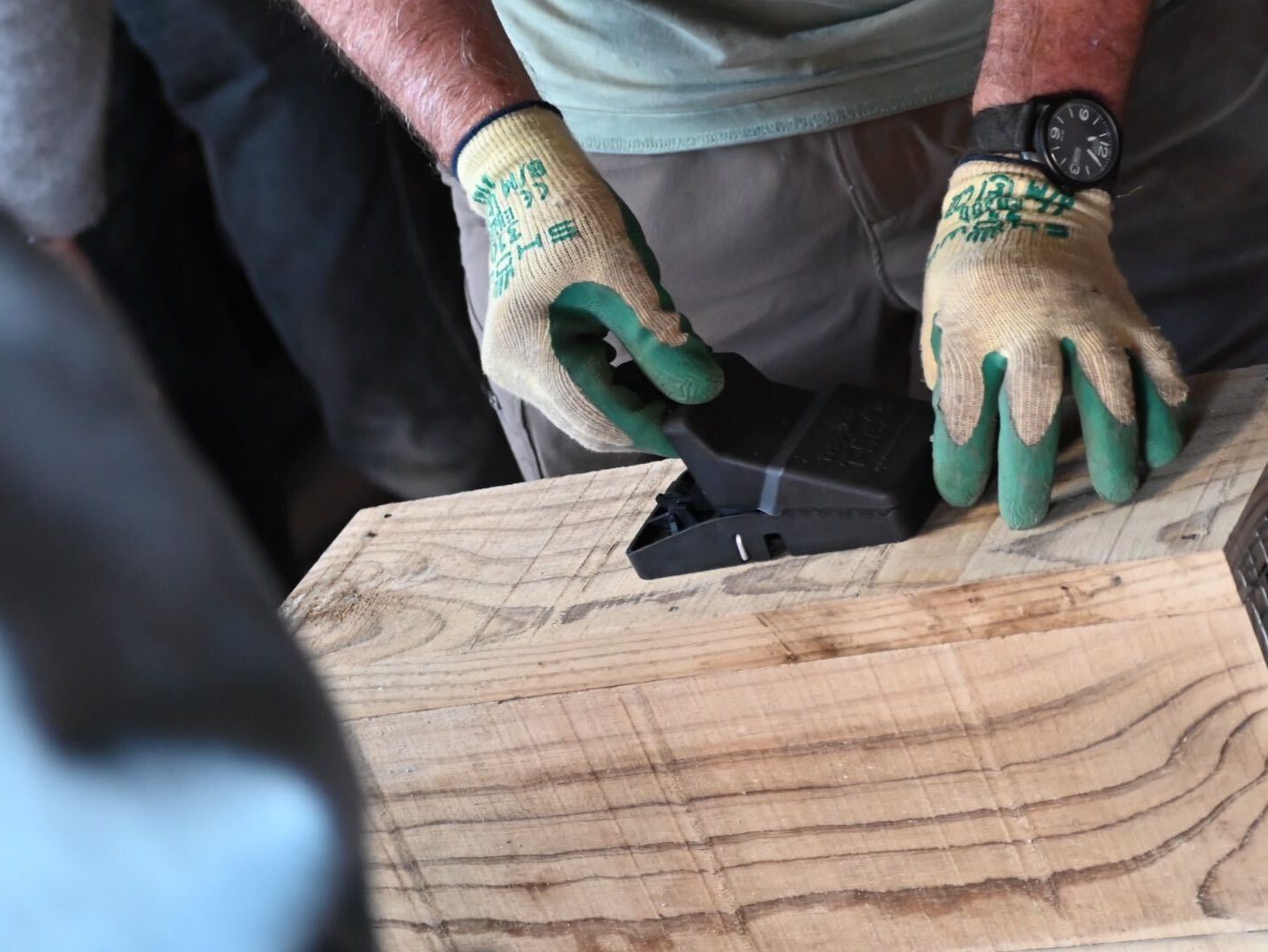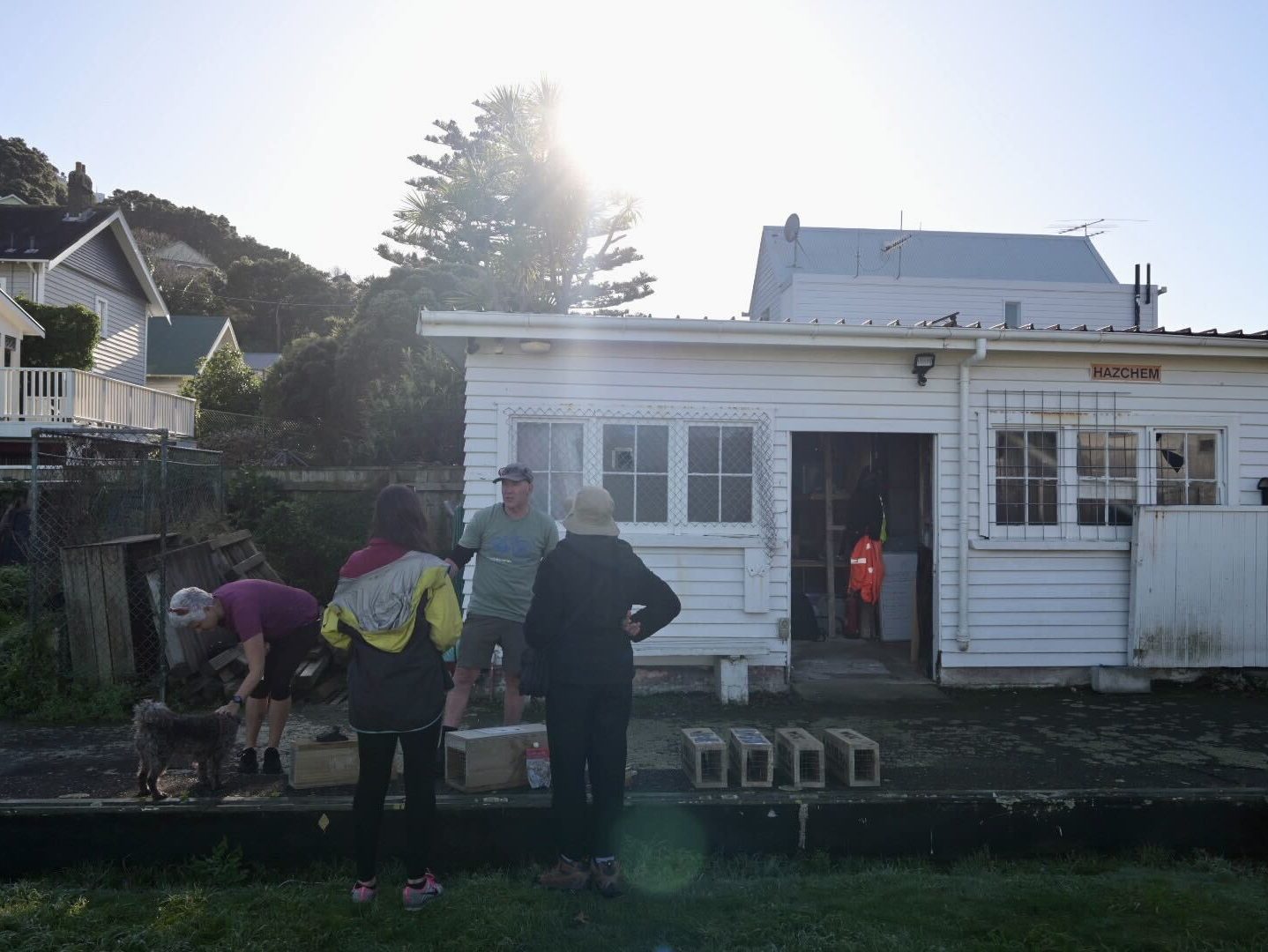It turns out it’s not just the birds that benefit from backyard trapping. Research by Zealandia’s Centre for People and Nature shows being involved in community trapping is also good for your mental health.

MenzSheds throughout the country offer people a space to get together and connect while doing something practical. Lots of Sheds focus on building things for the local community, with more and more getting involved in the predator free movement.
In the Wellington suburb of Hataitai, a group of residents are keen to turn their local MenzShed into a trap-building hub – hoping to build community and traps simultaneously.
New life for an old shed

When the Hataitai Centre found a new home in an old bowling club a few years ago, they wondered what to do with the greenkeeper’s shed. Chris Hare (chair of the committee that runs the Hataitai Centre and the Community House over the road) said opening a MenzShed was a perfect option.
With the ups and downs of the past couple of years, the Shed hasn’t seen much use lately, but their new workshop coordinator Floyd Morgan is keen to change that.
When Floyd was looking for a volunteer project to get involved in, he explored a few options. “Coordinating the Hataitai MenzShed ticked all my boxes,” he says. “It helped me connect with my community while doing something fun and practical.”
To breathe new life into the Shed, Floyd has spent the last couple of months sorting out the tools, sourcing materials, and engaging with the locals. He’s also been to visit other Wellington Sheds to see what sorts of projects have been successful in their communities.
Trapping tunnel vision

Floyd and Chris decided making rat trapping tunnels was the perfect project to kickstart the Shed’s revamp. They’re simple and quick to put together, so they could be finished in just one session.
“Hataitai is part of phase two for Predator Free Wellington,” Chris says. “So, it makes sense to use the resources we’ve got – like the Shed – to contribute to that.”
Chris is a keen trapper and has caught more than 1,000 rodents since he started his own trap line a few years ago. “People are pretty keen to do good work. We just need to get a few more rat boxes out and to remind people to rebait their traps every three weeks,” Chris says.
They put together some trap boxes to give away at the Hataitai Village Market, which runs out of the Centre on the first Saturday of the month. Market day was a great chance to run a membership drive for the Shed and promote trap-building.
“It’s early days,” says Floyd. “But we’ve had quite a bit of interest from the community already.”
With help from PFW, Floyd and the team are running trap-making workshops in the coming months.
Shedding the load

The MenzShed organisation knows that men’s mental and physical health is often overlooked, especially in retirement. So offering a relaxed, informal space to get together with others has been great for improving the lives of ‘Sheddies’ – and the positive impact filters into the community.
“Building something with a group of people which has some purpose attached to it is so helpful in bringing people out of depression and helping provide some meaning in people’s lives,” Floyd says.
The same is true for people involved in backyard trapping. Apart from the benefits of being out in thriving green spaces, the sense of contributing to a broader goal is hugely beneficial for trappers.
Local resident Alex Gossage was one of the first to sign up for the Shed and the trap-building workshop in July. “I work in an office, so it’s nice to do something practical that I can’t do at home because I don’t have a garage,” he says.
Alex sees the benefits of the predator free movement in his own backyard, where he reckons there is more birdlife than in some national parks. “There’s a community drive to keep making gains and not let the birds slip away again,” he says.
“Doing stuff with your hands and creating things is really good for your mental health, so getting involved in predator free is a perfect combo,” Alex says.
Want to join in?
If you live in Hataitai, head down to the Shed on market day or join a trap-making session on Wednesdays from 10-1. If you’re not a Wellington resident, reach out to a MenzShed near you and see if you can start making traps or get involved in a local backyard trapping group.
Chris sums up the benefits nicely – “You’re giving the native birds a chance to breed, and you’re giving the residents something to be proud of. It’s a win-win,” he says.

